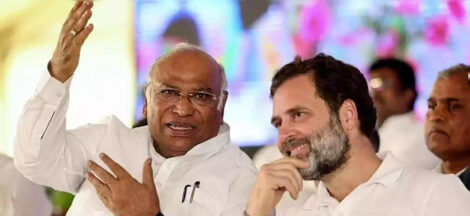India has implemented anti‑dumping duties on six critical chemical imports from China while preparing diplomatic and trade responses to a significant curtailment of specialty fertiliser exports—highlighting a concerted effort to defend its economic sovereignty. These moves come amid new data showing the bilateral trade deficit climbed to $99.2 billion in 2024–25.
A recent notification from the Ministry of Finance introduces duties spanning $481 to $2,018 per tonne on a range of Chinese-origin chemicals, including pharmaceutical‑grade acetonitrile, the herbicidal precursor PEDA, vitamin A palmitate, insoluble sulphur, potassium tertiary butoxide, and décor paper. Levied for five years based on DGTR findings, the tariffs aim to shield domestic suppliers from unfair pricing and bolster India’s manufacturing resilience.
In parallel, China has sharply slowed—effectively halted—shipments of specialty fertilisers essential to high‑value fruit and vegetable crops over the past two months. Senior industry executives confirm that, while no official embargo exists, Indian‑bound consignments are repeatedly stalled due to procedural hurdles and inspections, even as shipments to other countries continue unhindered. India relies on China for around 80 per cent of these nutrient supplements—typically 150,000–160,000 tonnes during the June‑December season. Rajib Chakraborty of the Soluble Fertilizer Industry Association describes the move as a “complete halt” following years of intermittent restrictions.
A former foreign secretary, Vijay Gokhale, observed that this may be a form of low‑key economic sanction—testing India’s response capacity. The Ministry of External Affairs has affirmed its readiness to address this unprecedented supply squeeze through diplomatic channels.
India’s domestic fertiliser production is not positioned to fill this sudden shortfall. Companies such as Deepak Fertilisers, Paradeep and Nagarjuna are exploring setting up local manufacturing, but inadequate technology and lack of scale have delayed progress. Alternative import routes—via Jordan or Europe—are under consideration, though lead times, cost escalation and formulation differences could impede timely deliveries ahead of peak sowing.
These trade defence measures coincide with diplomatic outreach efforts, including visits from India’s defence minister and national security advisor, signalling a dual‑track strategy: engage China diplomatically while deploying economic countermeasures. Commerce Minister Piyush Goyal termed earlier restrictions on rare‑earth magnets a “wake‑up call,” stressing investment in domestic capacity and diversification of supply chains.
The deployment of anti‑dumping duties and active diplomatic responses reflect New Delhi’s multifaceted approach: protect at‑risk sectors, deter further economic coercion, and reclaim strategic autonomy. Analysts suggest that sustaining this policy direction will require ramping up indigenous production, enhancing R&D, and engaging international partners through trade agreements and PLI‑type incentives.
India’s policy thrust sends a clear message that economic sovereignty takes precedence over dependency, even as both nations continue dialogues across security and regional platforms. A recalibrated trade policy, anchored in diversification and industrial strengthening, appears to be at the heart of New Delhi’s response to Beijing’s assertive economic posture.




